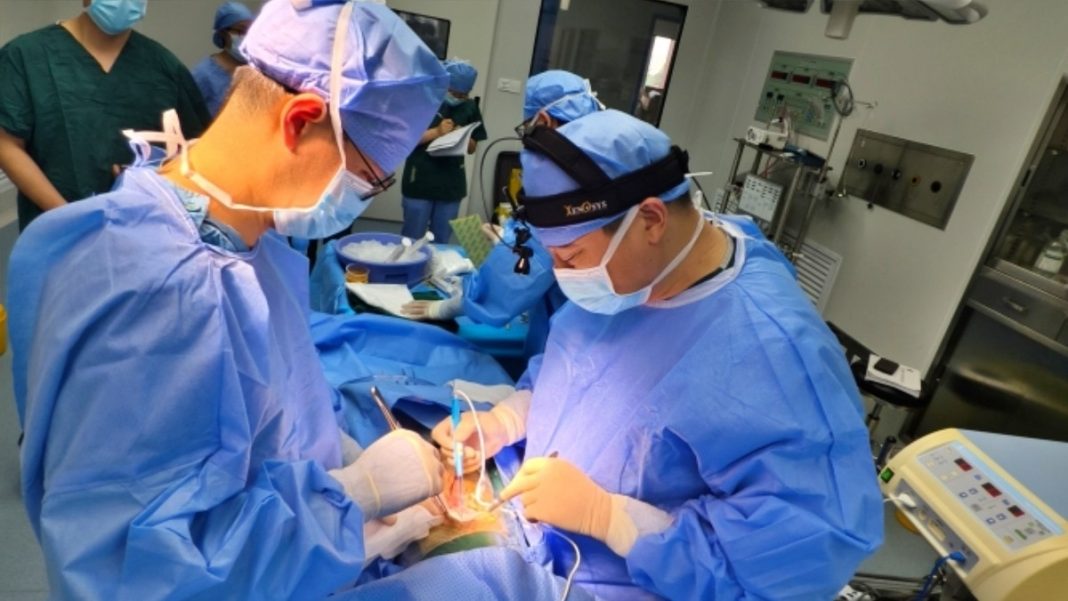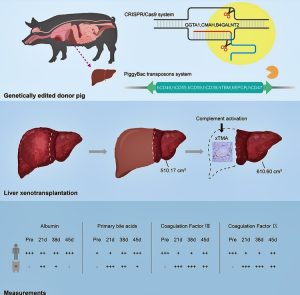Key Takeaways
- Chinese surgeons achieved the world’s first gene-edited pig liver transplant into a living human.
- The 71-year-old patient survived for 171 days post-surgery, a significant duration for xenotransplantation.
- The pig liver functioned effectively for 31 days before complications arose.
- This breakthrough establishes xenotransplantation as a potential bridge therapy for organ shortages.
In a landmark medical achievement, Chinese surgeons have successfully transplanted a genetically engineered pig liver into a human patient, who survived for 171 days afterward. This world-first procedure represents a major advancement in xenotransplantation – the transplantation of organs across species.
Procedure Details and Initial Success
The 71-year-old patient underwent the historic surgery on May 17, 2024, at the First Affiliated Hospital of Anhui Medical University. According to research published in the Journal of Hepatology, the pig liver was transplanted as an “auxiliary” organ, supporting the patient’s own liver rather than completely replacing it.
The patient had an unresectable tumor in the right lobe of his liver, leaving the remaining portion unable to sustain normal function. For the first 31 days post-operation, the pig liver functioned effectively, producing bile and coagulation factors with no signs of acute rejection.
Complications and Outcome
On day 38, complications emerged when blood clots formed in the small vessels of the transplanted liver, requiring surgical removal. The patient subsequently experienced recurrent gastrointestinal bleeding and passed away on day 171.
Despite this outcome, medical professionals celebrated the procedure as definitive proof that a genetically engineered pig liver can function in the human body for a clinically meaningful period.
Genetic Engineering Breakthrough
The donor pig underwent extensive genetic modification by researchers at Yunnan Agricultural University. The 10-gene editing process involved removing three pig genes responsible for antibody rejection and adding seven human genes to enhance biocompatibility.
“This case proves that a genetically engineered pig liver can function in a human for an extended period,” stated lead surgeon Beicheng Sun, President of Anhui Medical University.
Future Implications
Experts believe this breakthrough offers hope for patients awaiting human liver transplants by establishing xenotransplantation as a viable “bridge therapy.” While immune and coagulation challenges remain, this success represents a pivotal milestone in addressing the chronic worldwide shortage of human organs for transplantation.





